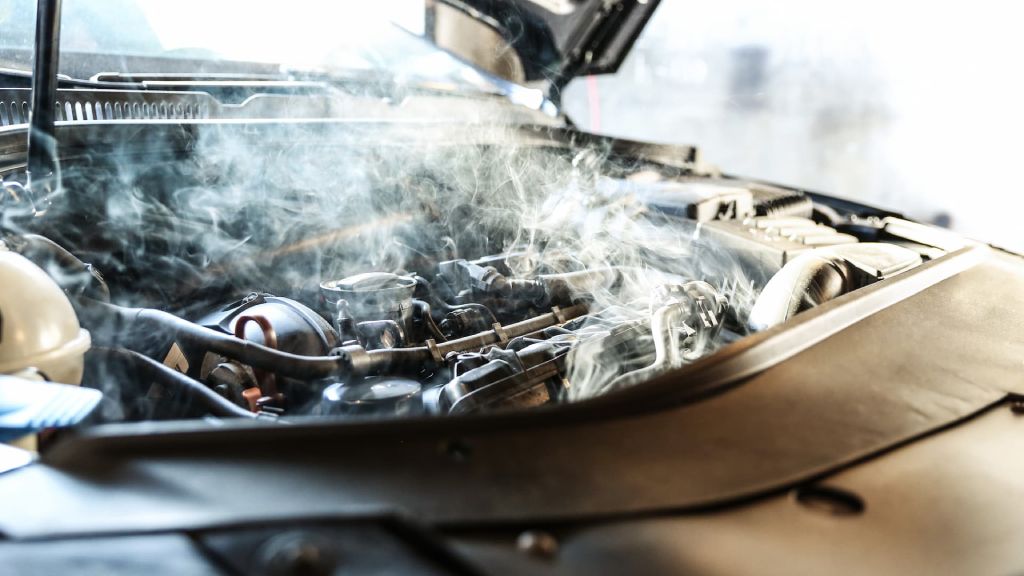
What To Do When A Car Engine Overheats?
Car engines are complex machines that generate an exceptional quantity of heat throughout the operation. While modern-day cars are geared up with green cooling systems, from time to time occasions can lead to engine overheating. This article will provide you with a complete guide on what to do when your vehicle engine overheats, supplying practical recommendations, step-by-means-of-step commands.
What Causes Engine Overheating?
Before we delve into the steps to take while your car engine overheats, allow explore the common causes of engine overheating. Understanding the foundation’s causes can assist in stopping such incidents in the future. Here are a few elements which could contribute to engine overheating:
- Insufficient Coolant: Low stages of coolant or a coolant leak can obstruct the engine’s cooling gadget, main to overheating. You can use the best quality & affordable radiator coolant to keep your engine cool.
- Malfunctioning Thermostat: A faulty thermostat can purpose the coolant to flow into incorrectly, stopping the right cooling.
- Radiator Issues: Problems with the radiator, along with clogs, leaks, or damaged fans, can prevent the cooling method.
- Cooling System Leaks: Leaks in the cooling device can reduce coolant degrees and disrupt the engine’s temperature regulation.
- Broken Water Pump: A malfunctioning water pump can result in inadequate coolant movement, main to engine overheating.
- Blocked Hoses: Obstructed hoses can impede the waft of coolant, causing the engine temperature to upward thrust.
- Faulty Sensors: A malfunctioning temperature sensor may additionally fail to alert the driving force of growing engine temperatures.
Steps to Take When Your Car Engine Overheats
Now that we’ve tested the common causes of engine overheating, permit’s flow onto the stairs you need to take while faced with this situation. Remember, protection has to be your top priority. Follow these instructions carefully:
1. Pull Over to a Safe Location
When you be aware your vehicle’s engine temperature gauge rising above the normal range or hit upon symptoms of engine overheating, it is critical to drag over to a safe region without delay. Choose a gap away from traffic in which you could park the car and turn off the engine.
2. Turn Off the A/C and Open Windows
To lessen the pressure on your engine, flip off the aircon gadget and roll down the home windows. This will help burn up the warmth and prevent further overheating.
3. Pop the Hood and Let the Engine Cool Down
After turning off the engine, carefully pop the hood to permit the trapped heat to get away. Be careful when coping with the hood because it might be warm. Give the engine sufficient time to calm down earlier than intended with any further steps.
4. Check Coolant Levels
Once the engine has cooled down, test the coolant degrees. Locate the coolant reservoir and ensure that the coolant is at the precise stage. If the coolant is low, you can add extra to the reservoir. However, be careful not to open the radiator cap whilst the engine continues to be hot, as it can reason extreme burns.
5. Inspect for Coolant Leaks
Inspect the engine bay and the ground under your automobile for any signs and symptoms of coolant leaks. Coolant leaks can be identified by way of the presence of a green or orange fluid. If you notice a leak, it’s recommended to are seeking expert help or have your car towed to a close-by provider middle.
6. Check for Obstructed Radiators or Hoses
Carefully look at the radiator and hoses for any seen obstructions, including particles or leaks. If you observe any clogs or damaged hoses, it is pleasant to seek advice from a professional mechanic for maintenance.
7. Restart the Engine
Once you have finished the important tests and allowed the engine to settle down, you could restart the engine. Monitor the temperature gauge closely to make sure it remains in the normal range. If the gauge continues to upward push, flip off the engine and search for professional help.
8. Seek Professional Assistance
If you’re unable to clear up the overheating trouble in your personal or if the trouble persists, it is essential to search for expert assistance. A licensed mechanic can diagnose the underlying cause of the engine overheating and provide important maintenance.
Conclusion
Experiencing an overheated engine may be a stressful situation, however by way of following the steps outlined in this manual, you could efficaciously cope with the hassle and save you similar damage on your vehicle. Remember to prioritize safety, are looking for expert assistance when essential, and carry out normal preservation to decrease the chance of engine overheating. By taking those precautions, you can make certain a smoother and greater reliable using enjoy.
FAQs (Frequently Asked Questions)
Can I Drive My Car When the Engine is Overheating?
It’s tremendously encouraged now not to force your car when the engine is overheating. Continuing to force with an overheating engine can cause extreme harm to the vehicle and might lead to steeply-priced upkeep.
How Long Does It Take for an Engine to Cool Down?
The cooling time for an engine depends on different factors, which include the outdoor temperature, the severity of the overheating, and the type of cooling machine. It’s the first class to attend at least 30 minutes for the engine to quiet down before attempting any maintenance or restarting the car.
Can I Use Water Instead of Coolant in an Emergency?
In an emergency scenario, you may use water as a transient alternative for coolant. However, it’s crucial to update it with the right coolant as soon as viable. Water lacks the vital anti-corrosion and anti-freezing homes, that could lead to long-term damage to the engine.
Why Does My Car Overheat Only in Stop-and-Go Traffic?
Engine overheating in the course of prevent-and-pass visitors is regularly due to decreased airflow to the radiator because of the low vehicle speed. The constrained airflow can obstruct the cooling system, ensuing in overheating. It’s recommended to have the cooling gadget and radiator inspected by way of a professional.
How Much Does It Cost to Repair an Overheated Engine?
The cost of repairing an overheated engine can vary relying on the motive of the issue and the quantity of the harm. It’s first-rate to consult a professional mechanic who can offer an accurate diagnosis and estimate for the maintenance.
How Can I Prevent Engine Overheating?
To save your engine from overheating, make certain normal preservation of your vehicle, including routine assessments of the coolant stages, hoses, and radiator. It’s additionally vital to deal with any cooling system problems right away and observe the producer’s suggestions for coolant alternative durations.





